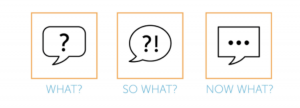Weekly Objectives and Achievement:
Achievements:
- Established connection with community partners at Vancouver Coastal Health
Gathered information about the neighborhood and community partner we will work with. - Finalized group proposal
- Developed a rough action plan.
- Build a tight connection between group members and evaluated everyone’s strength.
Weekly Objective:
- Clarify the information collection format with group members.
- Develop a detailed action plan and divide work between group member according to member’s strength and availability.
- Communicate about the expectation about the project and make sure no misunderstanding or disagreement.
Moment of Significance

What:
Although we picked the group based on our interests, none of us had heard about Vancouver Food Asset Map before, We also had very limited experience working on this kind of project. Although we get a better idea of the project after listening to the presentation by Teya, the dietitian from our community partner Vancouver Coastal Health, we still feel that we don’t have enough knowledge to start our proposal. There are much uncertainty. One example is we don’t know how to connect the concepts we learned in class, such as food security, to our project. Another example is we have never written a proposal for a project before. Furthermore, all of us didn’t know each other well before, we feel that sometimes we are not fully comfortable of expressing our ideas. For the reasons above, starting the proposal as the first big group assignment, was a challenge for us.
So what :
Our challenge arises because of unfamiliarity with the concept of Vancouver Food Asset Maps and with different members of the group. The familiarity with food asset maps can be achieved by making sure that group members attend lectures, read required materials, and meet with community partners, then break down the project into smaller and more specific parts for each member. To improve familiarity between group members and to improve performance of the group, one essential factor is of critical importance: trust. Active listening, and respecting the ideas of groups members should be employed to encourage the free expression of ideas within the group, as sharing important information through constant positive communication and interaction has been shown to be highly correlated with high-performing teams (Hakanen, Soudunsaari, 2012).
To start with, we make sure one of attend lecture, did reading,meet community partner , then we decide to break down the parts into three main parts : Introduction, significance, and conclusion. After getting back the draft, we talked to our TA, Francisco, to make sure we understand his comments. Alison and Alice did the final editing
With the knowledge and understanding from attending lectures and doing the assigned readings for the past few weeks, we are able to start moving forward to begin data collection on assets and work with our community partners.
Now what :
After getting the feedback, we will follow the feedback and proposal to continue our project. We will accept the challenges of facing uncertainties and difficulties because they help us grow and learn. Every member should listen to each other’s ideas and comments and help facilitate every discussion effectively. Try to set deadlines to plan ahead and stick to the plan throughout the term. As a group, we are going to work collaboratively to gather all the useful information for making the UBC food asset map more comprehensive.
Upcoming objectives and strategies
Objective 1 (week 6-7)
– Complete the food asset map trialing session and try to target all the food assets on the UBC campus and endowment lands
Strategies
– Conduct food asset map trialing at UBC food bank on Monday, March 6th
– Work with community members during the map trialing session, and receive feedback from them in order to better work with our objectives and strategies in later weeks
– Contact the UBC Endowment Lands to get the list of retail food companies who have a business permit to operate in the Endowment Lands
Objective 2 (week 8-9)
– Effectively collect data of the food assets and get familiar with data input
Strategies
– Contact the food assets and gain as much information as possible through phone, email, or interview
– Understand the processes of data collection and data input (using spreadsheet), and how we can add new information in the current map
– Group members keep looking for other food assets available on the UBC campus and endowment lands that we could add to the existing data
Objective 3 (week 10-12)
– Understand the strategies and requirements for completing the final report/presentation, and review our achievements about what we have done in order to sustain food security in communities.
Strategies
– Discuss within the group and assign different tasks to each member
– Group members should take our own responsibilities, and complete the project according to the requirements and rubrics
– Discuss with TA and Teya for some suggestions and expectations
– Gain feedback from communities for the final project
References
Hakanen, M., Soudunsaari, A.(2012). Building trust in high-performing teams. Technology Innovation Management Review. Retrieved from http://timreview.ca/article/567
